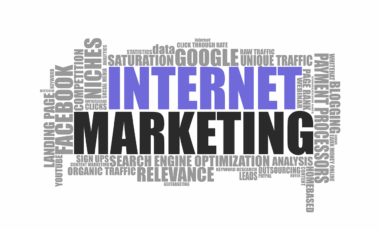Sustainable Marketing Practices and their Impact on ROI in B2C Markets
In today’s competitive landscape, understanding the impact of sustainable marketing practices on ROI in B2C markets has become essential for businesses. As consumers become increasingly aware of the environmental and social implications of their purchasing choices, brands that embrace sustainability often see enhanced loyalty and trust. This consumer shift necessitates that marketers adopt strategies not only focused on profit but also on ethical practices. By integrating sustainability into their core marketing strategies, businesses can improve their brand image and ultimately their ROI. Moreover, sustainable marketing practices also foster innovation, as companies seek new ways to meet consumer needs while adhering to eco-friendly standards. Additionally, these practices can differentiate brands in crowded markets, potentially leading to increased sales. While challenges exist, the long-term benefits of investing in sustainable initiatives can lead to improved customer relationships and increased lifetime value. In essence, by focusing on sustainability, B2C companies can drive better financial performance and create a more positive impact on their communities.
Various sustainable marketing practices can help enhance ROI significantly. This involves examining how strategies centered on sustainability can not only attract customers but also retain them. One impactful approach is through the promotion of eco-friendly products and services. For instance, brands can market their commitment to sustainability by highlighting their use of renewable resources, reducing waste, and engaging in fair trade practices. Consumers are increasingly discerning about their purchases; therefore, demonstrating transparency in sourcing materials can build trust and loyalty. Furthermore, companies can also leverage social media channels to effectively communicate their sustainable message, thus attracting an audience that values ethical consumption. Another essential practice is the implementation of community-focused marketing, where businesses engage in local initiatives that benefit both the community and their brand image. Companies adopting these practices often witness higher engagement rates and ultimately, a better ROI. The tangible benefits of sustainable marketing approaches can manifest in various ways, including more robust customer relationships, customer loyalty, and word-of-mouth endorsements, which collectively contribute to improved financial outcomes.
Measuring ROI from Sustainable Marketing
Understanding how to measure ROI from sustainable marketing efforts is crucial for B2C businesses. Traditional ROI calculations primarily focus on direct sales revenue, yet sustainable initiatives also yield broader benefits that contribute to long-term gains. Key performance indicators (KPIs) relevant to sustainability, such as brand equity, market share growth, and customer lifetime value, are equally important to consider. For instance, increasing brand awareness through sustainability efforts can lead to higher conversion rates, pushing customers through the sales funnel more efficiently. Another dimension is engaging repeat customers who align with the brand’s mission; retention rates are a critical indicator of a successful sustainable marketing strategy. Additionally, businesses should analyze the cost implications of sustainability programs against revenues generated by these initiatives, providing a clearer picture of overall ROI. Implementing consumer feedback mechanisms can also offer insights into customer sentiments regarding sustainable practices. Companies must be diligent about tracking these metrics consistently and transparently to effectively communicate the importance of sustainability in driving business success.
Implementing sustainable marketing strategies also provides significant competitive advantages in B2C markets. By prioritizing sustainability, brands can differentiate themselves from competitors who may not prioritize eco-friendly practices. Consumers often favor brands that echo their values, leading to stronger brand partnerships and integrations. Moreover, these sustainable approaches can enhance a brand’s reputation, leading to favorable media coverage and word-of-mouth. As the demand for accountability grows, brands that transparently showcase their sustainable practices may also attract investors looking for socially responsible opportunities. Additionally, sustainability can pave the way for innovative product development, encouraging companies to rethink and redesign offerings through the lens of environmental responsibility. This innovation can lead to cost savings in materials and processes. There may also be government incentives available for companies committed to sustainable practices, further enhancing financial viability. This multifaceted approach ensures that sustainable marketing not only meets consumer expectations but also secures a strategic advantage in the B2C landscape, positively influencing overall market performance.
Challenges and Solutions in Sustainable Marketing
While the benefits of sustainable marketing are clear, B2C businesses face numerous challenges in implementation. One major hurdle is the need for substantial investment in new processes, which can deter businesses from embracing sustainability fully. Moreover, effectively communicating these efforts to consumers can be complicated. Brands may struggle with perceptions of ‘greenwashing,’ where marketing initiatives appear insincere or misleading. To counter these challenges, companies should prioritize authentic storytelling that genuinely reflects their sustainable journey, focusing on transparency and measurable impact. Training staff in sustainability principles can create a culture dedicated to eco-friendly practices. Collaborating with stakeholders and other businesses can also provide resources and insights to support sustainable initiatives. Furthermore, leveraging technology for better data gathering and measurement can enhance the credibility of sustainability marketing. This data can then be used to reshape strategies, proving that the investments in sustainable practices lead to measurable financial returns. By addressing these challenges, companies will better position themselves in the market, ultimately leading to a more robust ROI.
Another fundamental aspect of sustainable marketing is the consumer’s evolving role in shaping a brand’s approach. Engaging customers as partners in sustainability can lead to deeper brand connections and a better understanding of their preferences. Implementing educational campaigns can raise awareness about sustainability and the benefits of making responsible purchase decisions. Encouraging and incentivizing consumers to share their sustainable practices can amplify brand messages and foster community within target markets. Loyalty programs that reward eco-friendly actions, such as recycling or reduced consumption, can turn consumers into passionate advocates for a brand’s mission. Additionally, brands can utilize feedback channels to remain responsive to consumer concerns over sustainability, ensuring their offerings meet market demands accurately. Integrating consumer insights into marketing strategies can enhance alignment between brand values and customer expectations. As consumers become more proactive in seeking ethical brands, B2C companies embracing sustainable marketing gain a definite edge. This collaborative focus ensures that brands are not only meeting market needs but are also contributing to greater social and environmental well-being.
The Future of Sustainability in B2C Marketing
Looking ahead, the future of sustainability in B2C marketing appears promising. As awareness around climate change and social justice rises, consumers increasingly prioritize brands that reflect their values. Consequently, B2C companies that integrate sustainable practices into their core strategies will likely see enhanced customer loyalty, increased market share, and improved ROI. Innovations such as artificial intelligence and big data can help marketers understand consumer preferences related to sustainability, leading to more personalized and effective marketing strategies. Furthermore, shifting regulations around sustainability will drive brands to adapt their marketing practices, fostering a competitive marketplace focusing on environmental accountability. This will force companies to innovate continuously, thus enriching product offerings, enhancing brand prestige, and driving profitability. Collaborative efforts across industries that emphasize sustainability can lead to substantial collective impact, reinforcing consumer trust and loyalty. Ultimately, as more consumers demand transparency and accountability, B2C marketing must adapt, ensuring that the economic, social, and environmental dimensions of sustainability are at the forefront of business strategies.
To sum up, sustainable marketing practices play a critical role in shaping modern B2C businesses. By understanding and measuring the impact of these strategies on ROI, companies can prioritize essential initiatives that resonate with consumers. Successfully navigating the challenges inherent in adopting sustainable marketing practices allows brands to leverage their ethical positioning to foster deeper connections with customers. Engaging consumers in meaningful ways and creating authentic narratives surrounding sustainability can enhance brand loyalty. The future promises further advancements in sustainable practices and marketing innovations, driving competitiveness in B2C markets. Ultimately, the integration of sustainability into marketing strategies is not just advantageous; it is becoming necessary for long-term success in the modern economy. As consumers continue to advocate for positive change, brands must rise to the challenge, ensuring their practices align with consumer expectations. This evolving landscape highlights the importance of sustainability in shaping strategies that encourage both ethical consumerism and profitable outcomes.





